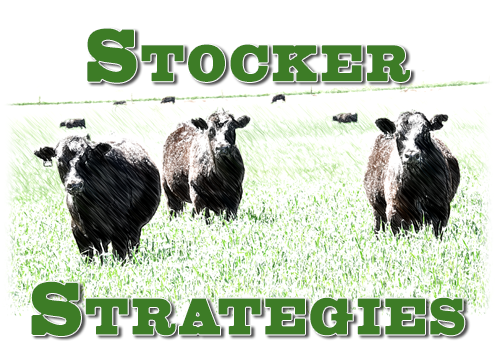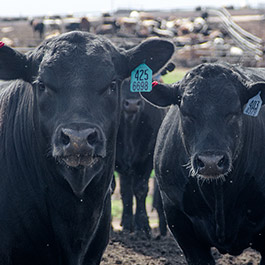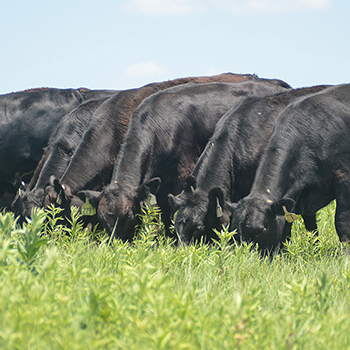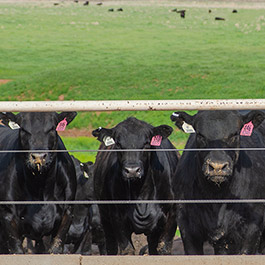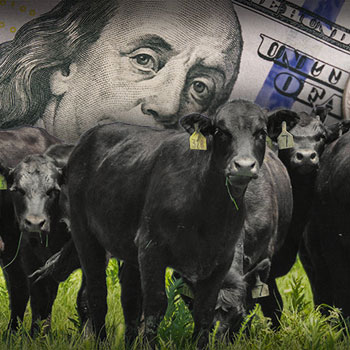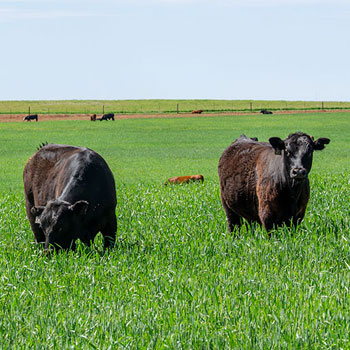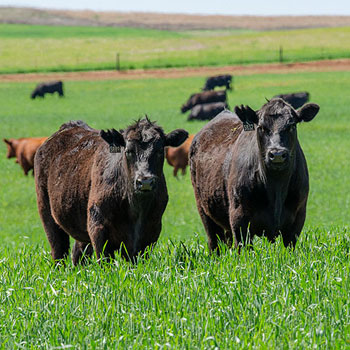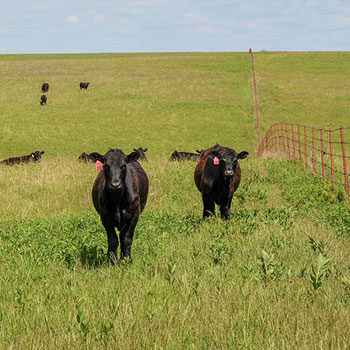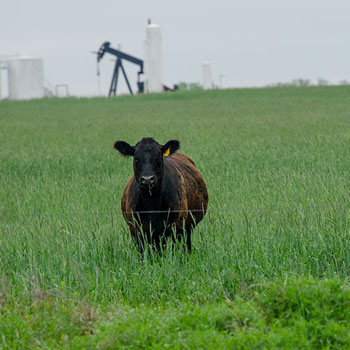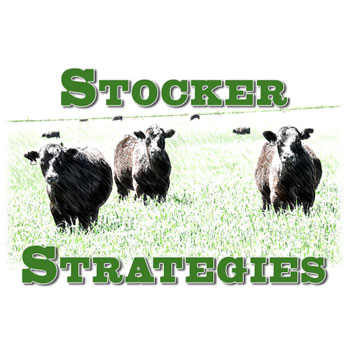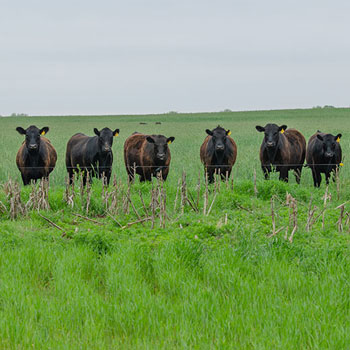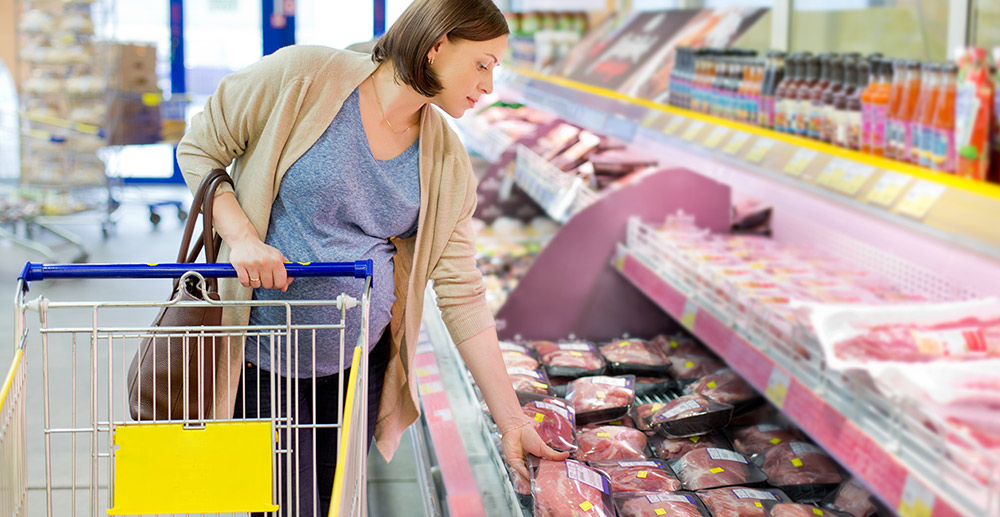
Beef Is Most Valuable Protein
When beef is in the shopping cart, retailers earn more.
More than 1,500 attendees, including retailers, processors and packers attending the 2020 Annual Meat Conference in Nashville, Tenn., learned that beef is the most valuable protein in terms of sales and how the beef industry’s Beef Quality Assurance (BQA) program is helping to improve consumer perceptions about how high-quality beef is raised in the United States.
The National Cattlemen’s Beef Association (NCBA), a contractor to the Beef Checkoff and manager of the Beef. It’s What’s For Dinner. brand, had a major presence at the event, including a packed booth in the tradeshow, which provided an in-depth look at the voluntary, Beef Checkoff-funded program that ensures U.S. beef is produced under stringent animal care standards. The BQA program was introduced to consumers in the fall of 2019 with a campaign designed to educate the general public about how beef in the United States is responsibly raised and the farmers and ranchers committed to producing safe, high-quality beef. Retailers were excited to learn that today, thanks to the commitment of cattle farmers and ranchers, more than 85% of beef comes from BQA-certified farmers and ranchers.
“Consumers want to know how their food is raised, and market research shows that when consumers learn about BQA, their confidence in beef increases,” said Bridget Wasser, executive director of meat science and supply chain outreach at NCBA. “By relaying that information to retailers, we can help educate and support them in achieving their bottom line and driving beef sales.”
To gain better perspective on BQA and the farmers and ranchers behind it, attendees had the opportunity to talk to cattle ranchers Buck Wehrbein and Kim Brackett. Brackett, an Idaho-based cattle rancher and BQA advisory committee chair, was at the booth to talk about how she focuses on animal care, grazing practices, cattle genetics, wildlife habitat and soil health. The booth experience was designed to help better equip retailers to educate their customers and answer questions about how beef is safely and humanely raised and was part of the overall campaign to bring BQA to life for consumers, influencers, supply chain operators and the media.
“It was eye-opening to attend this event and see this large group of processors, distributors and retailers experiencing many of the same challenges, opportunities and issues that beef producers face day in and day out.” said Wehrbein, federation division chair at NCBA. “We truly are on the same team, and these folks are just as passionate about our product as we are. I have renewed outlook, and I look forward to sharing what I experienced at this conference with my board and fellow producers.”
In addition to getting an extensive look at BQA, attendees were presented with the latest research from a test-pilot program regarding labels. This research tested the effectiveness of featuring the Beef. It’s What’s For Dinner. logo and QR codes on non-branded packages of beef. Findings from this research included:
- Packages that feature the Beef. It’s What’s for Dinner. logo and a QR code come out on top compared to plain packages, with consumers saying they liked that it grabbed their attention and made it easy to directly search for information about the product.1
- Consumers say they are more likely to purchase a package of beef that has the Beef. It’s What’s For Dinner. logo and QR code on it, citing credibility and trust as the top reasons.1
To further drive home the importance of educating and building confidence in consumers, attendees also got to see the results from market research highlighting the value beef adds to a shopping cart, confirming beef’s position as the most valuable protein. These highlights included:
- Beef drives sales. When beef is included in the basket, it generates a higher average purchase total when compared to baskets with other animal proteins.2
- Carts with beef produce sales 19 times greater than carts with beef substitutes.3
- Retail beef demand has continued to increase during the past several years, with demand up 15% since 2012.3
“Attending the Annual Meat Conference was extremely valuable for our team as we work to educate and support retailers,” said Wasser. “We look forward to continuing to build these relationships and expanding the ways the Beef. It’s What’s For Dinner. brand can enhance the meatcase experience and, in turn, drive beef sales.”
To learn more about how Beef. It’s What’s For Dinner. can help retailers boost their bottom line, visit BeefItsWhatsForDinner.com/Retail.
Editor’s note: This article is provided by the Cattlemen’s Beef Board.
- 1 Source: Beef. It’s What’s For Dinner. Package Test
- 2 IRI Panel Data, Market Basket Study, February 2019
- 3 IRI/Freshlook retail sales data is available with 5-6 years of history, hence, the January 2012 starting date for these indices
